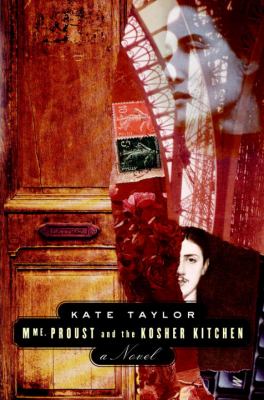Mme Proust and the kosher kitchen
About the book
Author: Taylor, Kate
Title: Mme Proust and the kosher kitchen.
Publication: [Toronto] : Doubleday Canada, c2003. ISBN 978-0701173746.
DAISY audio format narrated by Nicki Scrimger. CELA library call number DA25030. 414 pages in the hardcover edition; 15 hrs., 41 mins. as a recorded book.
About the story
I picked up this book because Kate Taylor, a Canadian author, has a new book coming out soon. The new one, Serial monogamy, will not be available on CELA for several more months, so I downloaded this one to try instead.
This is a novel written about several women in several periods of history.
- The older story is that of Mme. Proust, mother of the famous Marcel, as she tells it in a series of diaries written around the turn of the 19th century.
- Next is the story of Sarah Bensimon, a young woman who came to Canada to escape the Holocaust in the 1940s. Her mother also figures in the early part of the story.
- Finally, the third storyline is that of an interpreter, Marie, writing from the 1980s to about the year 2000. It is she who ties these two women together.
I found this book very moving. The stories of these women were told with great sensitivity and, I suspect, historical accuracy. Each in its own way was compelling and woven together they make a surprisingly complex whole.
A lot of attention was paid to the Jewish experience, from l’affaire Dreyfus in the 1890s, through the atrocities of the 1940s and into the modern time. Sarah spends a lot of time combining French cuisine and Kosher cuisine in her Kosher kitchen: this brings her solace and makes the reader very hungry. Mme. Proust, whose daily journals are filled with her son and his activities, with some mention of the affairs of the day, is a very engaging diarist (at least as translated by Marie in later years).
The depiction of the national archives in 1980s Paris is hilarious.
Reading the DAISY audiobook, I got a bit confused by the changes in voice and time periods. I can only guess that there was a typographical convention in the original that was not rendered in the DAISY book. I don’t think this was the fault of the narrator, who read this book excellently and in a very listenable manner. It might have benefited from three different readers, but I quibble.
Though I avoid Holocaust books in general (because of the absolute horror), I would definitely recommend this book. It touches gently on that topic, and deals excellently with the inter-generational trauma that it continues to inflict today.
Recommended?
I would recommend this book.
